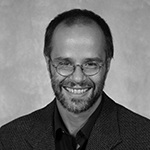
A protester is detained by police during a demonstration against the Turkish government's removal from office of three pro-Kurdish mayors on August 19, 2019, in Ankara. Photo: AFP / Adem Altan
The “trustee” mayors that the state appoints in place of the elected mayors come from the ranks of Mr. Erdogan’s “Justice and Development” Party (the AKP), living in fortified compounds and riding to work in armored cars. They use municipal funds to lavishly decorate their offices and busily undo the work of the elected mayors, banning Kurdish street names and removing bilingual services in “their” cities.
The mayors of Diyarbakir, Mardin and Van will probably join some one hundred pro-Kurdish Peoples' Democratic Party (HDP) mayors from the previous election who were removed by the state and put behind bars. The Turkish state prosecutes and removes them based on extremely vaguely worded “anti-terrorism” laws.
According to Human Rights Watch, “Abusive prosecutions and investigations for overly broad and vague terrorism offenses are widely used in Turkey to silence and arbitrarily detain government critics, journalists, human rights defenders, and opposition politicians.”
The mayors dismissed this week had not even been convicted of anything, but rather had charges of “terrorism” levelled against them by the state. The charges, according to Turkey’s Ministry of the Interior, included “renaming local streets and parks after imprisoned PKK members and offering jobs to the relatives of militants.”
Turkey’s anti-terrorism laws remain so vague that the state can go after virtually anyone it wishes. Intentional or unintentional “support for terrorist organizations” can, under this regime, include advocating for the legalization of the Kurdish language in various venues, calling for an end to state-Kurdistan Workers’ Party (PKK) fighting, or criticizing Turkish invasions of Syria. If the PKK called for any of these things, Turkish judges reason, then anyone else calling for the same is guilty of “spreading terrorist propaganda.”
Even other Turkish opposition leaders, such as the recently elected Republican People’s Party (CHP) mayors of Istanbul and Ankara, can face terrorism charges for publicly criticizing the removal of HDP mayors. In true fascist style, they may be next.
Journalists from Britain’s The Independent newspaper asked Turkish Interior Minister Suleyman Soylu “…whether those officials voicing support for the ousted mayors could also be accused of sympathy for terrorist groups.” He reportedly responded, “To what extent should mayors engage in political commentary? My advice to them is, they should mind their business and should not make ridiculous comments about things they don’t understand.”
Apparently even former AKP high level leaders, who were ousted by Erdogan after they became too popular, this time felt the need to “comment about things they don’t understand”: Ahmet Davutoglu and Abdullah Gul joined the European Union, a plethora of human rights organizations and other opposition parties such as the CHP in criticizing the ouster of the mayors as “anti-democratic.”
The mayors of Mardin, Diyarbakir and Van won 63%, 56% and 53% of the votes in their cities last March. A regime that cannot bear to let such municipal electoral results stand is weak, not strong. As Mr. Erdogan and his government’s popularity wanes, the need to polarize society and stoke nationalist fears grows. Overturning the will of the people in Kurdish parts of the country effectively closes one of the pressure valves there, legitimizing the rhetoric of the PKK about “armed struggle” being the only option left. The resulting simmering conflict sees conservative and nationalist voters support parties promising “strong action against terrorism.”
While this may work well for Mr. Erdogan and his nationalist coalition partner’s electoral strategy, it bodes ill for Turkey in general. A more confident regime in Ankara would let the HDP opposition have some municipalities in the poverty-stricken Kurdish southeast of the country. A few Kurdish street names and a few parks named after PKK militants is not the end of the world.
Nor is the HDP the same as the PKK. Although both are majority Kurdish and pro-Kurdish, the former wishes to pursue the rights of Kurds and other minorities legally and from within the political system. Denying them that option only empowers the latter.
|
|
David Romano has been a Rudaw columnist since 2010. He holds the Thomas G. Strong Professor of Middle East Politics at Missouri State University and is the author of numerous publications on the Kurds and the Middle East. |









Comments
Rudaw moderates all comments submitted on our website. We welcome comments which are relevant to the article and encourage further discussion about the issues that matter to you. We also welcome constructive criticism about Rudaw.
To be approved for publication, however, your comments must meet our community guidelines.
We will not tolerate the following: profanity, threats, personal attacks, vulgarity, abuse (such as sexism, racism, homophobia or xenophobia), or commercial or personal promotion.
Comments that do not meet our guidelines will be rejected. Comments are not edited – they are either approved or rejected.
Post a comment